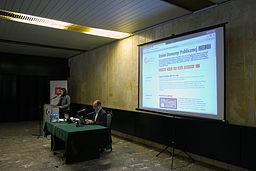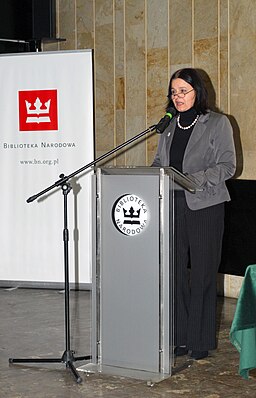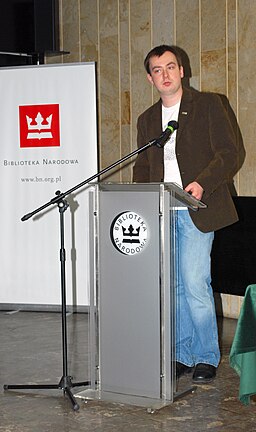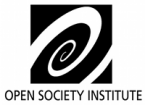Tegoroczne obchody Dnia Domeny Publicznej upłynęły pod znakiem projektów i inicjatyw realizowanych przez instytucje szeroko rozumianej kultury. Wszystkie zaprezentowane pomysły bazują na zasobach domeny publicznej i wykorzystują je na różnych poziomach i na różne sposoby.
 Tytułem wstępu dyrektor Biblioteki Narodowej Tomasz Makowski oraz Bożena Bednarek-Michalska z Biblioteki Uniwersyteckiej w Toruniu przedstawili powody, dla których warto podkreślać wagę Domeny publicznej w Polsce i na świecie. Bożena Bednarek-Michalska zwróciła uwagę na ważny cytat z książki James’a Boyle’a ‚The Public Domain’, w którym autor zaznacza, że Domena publiczna nie jest rodzajem resztek, które pozostały po objęciu wszystkich dobrych treści ochroną przez prawa własności. Domena publiczna to miejsce, z którego pobieramy części składowe naszej kultury. W gruncie rzeczy Domena publiczna stanowi znaczącą jej część (2008).The third edition of the Public Domain Day in Poland celebration was organised at Warsaw’s National Library by the Coalition for Open Education with support from Open Society Institute. Coalition is a group of non-governmental organisations and institutions working in the fields of education, science and culture and promote open access to knowledge. This years’ celebration was focused on presentation of projects and initiatives that are realised and implemented by Polish resource-sharing culture institutions. All presented ideas are based on Public Domain resources and use them in different ways and on different levels in education, science and culture.
Tytułem wstępu dyrektor Biblioteki Narodowej Tomasz Makowski oraz Bożena Bednarek-Michalska z Biblioteki Uniwersyteckiej w Toruniu przedstawili powody, dla których warto podkreślać wagę Domeny publicznej w Polsce i na świecie. Bożena Bednarek-Michalska zwróciła uwagę na ważny cytat z książki James’a Boyle’a ‚The Public Domain’, w którym autor zaznacza, że Domena publiczna nie jest rodzajem resztek, które pozostały po objęciu wszystkich dobrych treści ochroną przez prawa własności. Domena publiczna to miejsce, z którego pobieramy części składowe naszej kultury. W gruncie rzeczy Domena publiczna stanowi znaczącą jej część (2008).The third edition of the Public Domain Day in Poland celebration was organised at Warsaw’s National Library by the Coalition for Open Education with support from Open Society Institute. Coalition is a group of non-governmental organisations and institutions working in the fields of education, science and culture and promote open access to knowledge. This years’ celebration was focused on presentation of projects and initiatives that are realised and implemented by Polish resource-sharing culture institutions. All presented ideas are based on Public Domain resources and use them in different ways and on different levels in education, science and culture.
 Dr Tomasz Makowski, director general of the National Library and Bożena Bednarek-Michalska from University Library in Toruń explained reasons why we should stress the importance of Public Domain in Poland and around the world. Bożena Bednarek-Michalska underlined the significant quote from James Boyle’s book ‘The Public Domain’ (2008): The Public Domain is not some gummy residue left behind when all the good stuff has been covered by property law. The Public Domain is the place we quarry the building blocks of our culture. It is, in fact, the majority of our culture.
Dr Tomasz Makowski, director general of the National Library and Bożena Bednarek-Michalska from University Library in Toruń explained reasons why we should stress the importance of Public Domain in Poland and around the world. Bożena Bednarek-Michalska underlined the significant quote from James Boyle’s book ‘The Public Domain’ (2008): The Public Domain is not some gummy residue left behind when all the good stuff has been covered by property law. The Public Domain is the place we quarry the building blocks of our culture. It is, in fact, the majority of our culture.
During the celebration of DDP, the premiere of Public Domian counter took place. The PD counter has been developed within the project “Wolne Lektury” Internet library with school readings from Public Domain. Magdalena Biernat and Radosław Czajka from Modern Poland Foundation presented the function of the PD counter which after type the author’s name informs how long (in years, days, hours, minutes and seconds) we have to wait until works will pass to the Public Domain resources. Currently, in the PD counter’s database are registered 800 authors from literature and poetry whose works belong to the canon of the school reading.
Tomasz Ganicz from Wikimedia Polska Association presented the Polish Wikisource, another bottom-up initiative aimed at digitalisation of Public Domain resources or resources published on free license. The scope of the Polish Wikisources agrees in part with digitalisation activity of Polish digital libraries. However, Wikisources provides not only digital copies of original works, but also full sources in format of simply webpages with table of content and simple navigation. This is probably the greatest added value to the project.
Joanna Derkaczew, a theatre critic from Gazeta Wyborcza, put some light on problems of modern generation of playwrights (Jan Klata, Natalia Korczakowska, Monika Strzępka, Paweł Demirski etc.), who adapt classic of drama and have to struggle with the opposition of conservative authors, not permitting for great variation or adaptations of the original works. According to the younger generation of theatre directors, stick to one version of the original work inhibits creativity and cultural development.
The final project was Social Labs of Digitalisation, the initiative developed at the Silesian Digital Library (SDL) since 2007. Remigiusz Lis presented the basic assumptions of the Labs which is the use of social commitment to professional activities (according to the idea of Web 2.0) and provide work for the digitalisation and creation of digital resources for SDL. As a result of the Lab, four thousand resources were digitalised, which gives 23% of the SDL database.
Jarosław Lipszyc, the chair of Coalition for Open Education, as a summary of PDD celebration has formulated several suggestions and possible solutions aimed at effective development and Pubic Domain protection:
- to accept the protection of public domain as a principle
- to develop systematic support for development and use of Public Domain resources
- resources developed with support from public funding should be published in Public Domain or on free licenses (so on conditions that allow for use in similar scope as resources from PD)
According to changes in legislative regulations, Coalition for Open Education suggested that authors should obtain the right to transfer their works to the Public Domain. Next, Coalition indicated a transfer to PD resources to which rights belong to the state and make them available and useable for every citizen.
Discussed issue is the legitimacy of the Fund for the Promotion of Creativity, which in its current form is a tax on commercial exploitation of resources from the public domain. Coalition stressed also that equally important for the development of PD is launching a public debate on the state of intellectual property rights, which according to legal regulations last 70 years after the author’s death, while according to the Berne Convention, the most effective period of copyright protection is 50 years.
The annual celebration of the Public Domain is important because it reminds to the public that, by creating and supporting a strong Public Domain, we build the prestige and respect for its values. In that way we also underline that expansion of Public Domain and its protection prompt creativity in all of us, especially a new generation. Czytaj dalej












